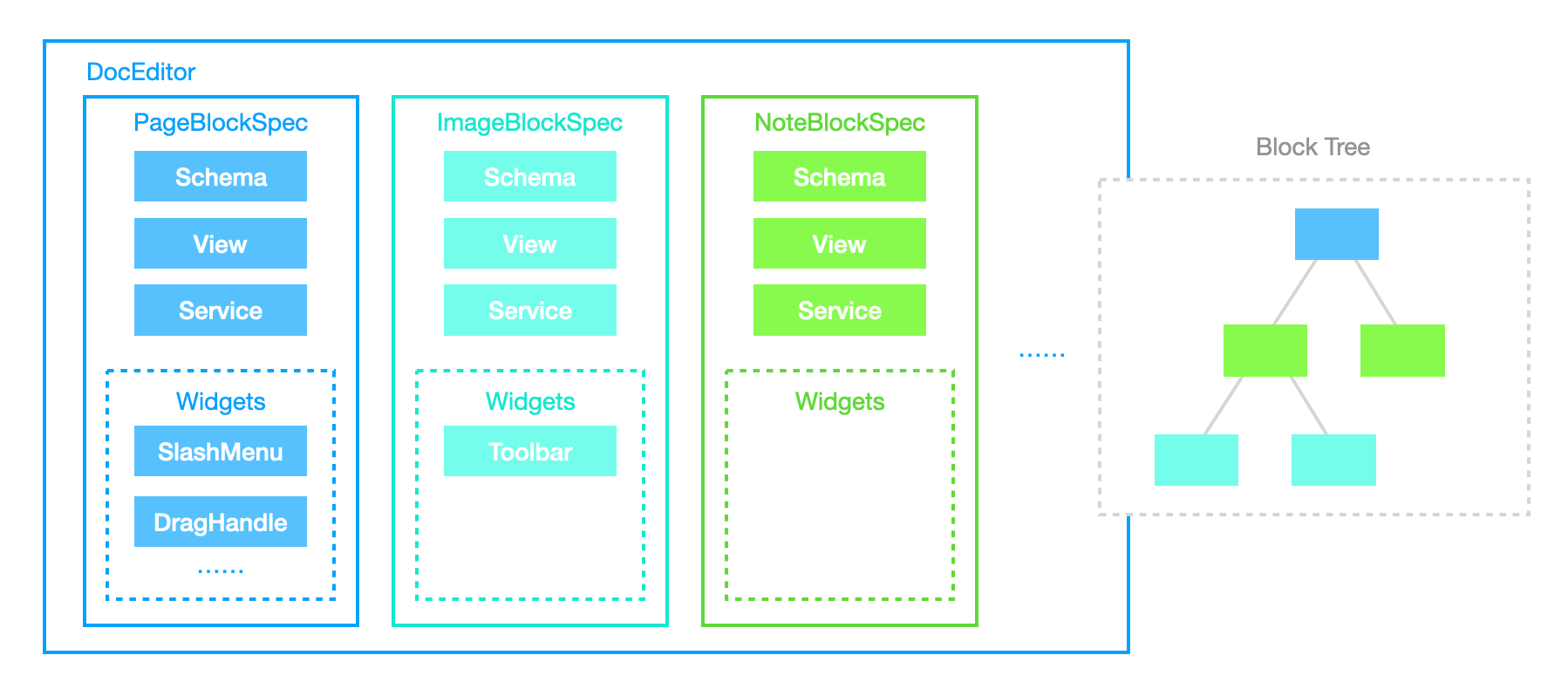Block Spec
INFO
This document is preliminary and subject to refinement and updates for clarity and accuracy.
In BlockSuite, a BlockSpec defines the structure and interactive elements for a specific block type within the editor. BlockSuite editors are typically composed entirely of block specs, with the top-level UI often implemented as a dedicated block, usually of the affine:page type.
A block spec contains the following properties:
schema: Defines the structure and data types for the block's content.service: Used for registering methods for specific actions and external invocations.view: Represents the visual representation and layout of the block.component: The primary user interface element of the block.widgets: Additional interactive elements enhancing the block's functionality.

Lit-Based Example
Note that in block spec, the definition of view is related to UI frameworks. By default, we provide a @blocksuite/lit package to help build a lit block view. But it's still possible to use other UI frameworks. We'll introduce later about how to write custom block renderers.
Here is a example of a lit-based block spec:
import type { BlockSpec } from '@blocksuite/block-std';
import { literal } from 'lit/static-html.js';
const MyBlockSepc: BlockSpec = {
schema: MyBlockSchema,
service: MyBlockService,
view: {
component: literal`my-block-component`,
widgets: {
myBlockToolbar: literal`my-block-toolbar`,
myBlockMenu: literal`my-block-menu`,
},
},
};We'll introduce each part of the block spec in the following sections.